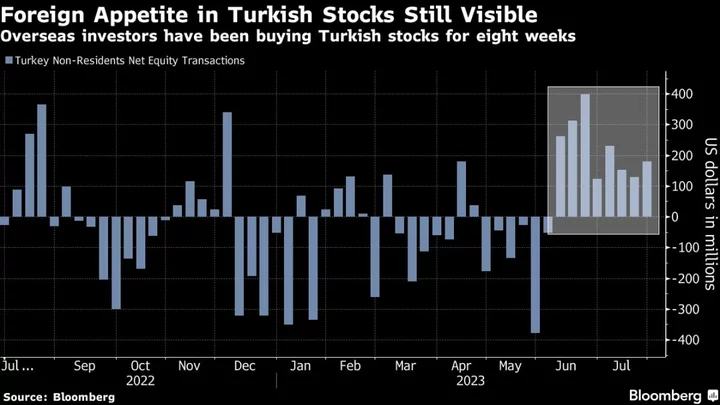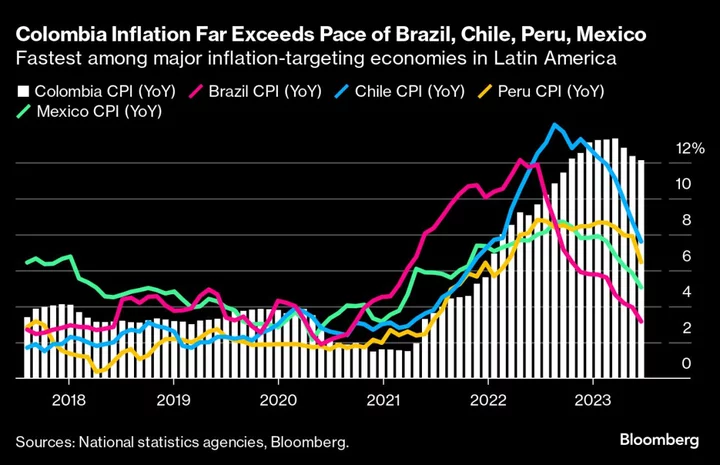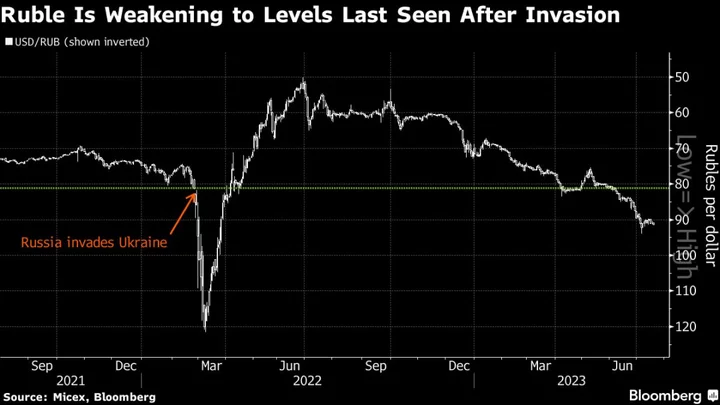China’s restrictions on overseas access to data are driving investors away, according to short seller Blue Orca Capital LLC, whose founder says the curbs undermine the investment case for the world’s second-largest stock market.
Raids at consulting and due diligence companies, and the growing difficulty overseas firms face in accessing corporate databases are turning China “into a complete black hole of investment information,” said Soren Aandahl, who is known for his bets against Hong Kong-listed companies.
Beijing has been tightening control over corporate and economic data that it deems sensitive as competition intensifies with the US, and as the economy struggles. The policies will likely worsen the ongoing exodus of foreign funds, Aandahl said.
“There’s no question the access to data has dramatically changed,” he said in an interview. “All that’s going to do is drive investors away from China.”
The data access difficulty, coupled with the market’s plunging valuations, has led Blue Orca to cut the time it spends studying Chinese companies listed in Hong Kong and the US to 5% to 15%, down from about 70% previously, Aandahl said.
Province- and city-level taxpayer lists of the most profitable companies aren’t published anymore, he said. In the early 2010s, companies reported detailed financial statements to the local State Administration of Industry and Commerce offices, whereas access for investors is now getting limited to basic metrics such as revenue, total assets and liabilities, and net income, Aandahl said.
“This is an example of declining transparency in the market which has a chilling impact on investment because the usage case for these filings was far greater on the long side,” said Aandahl. “It’s not a complete blackout. Yet today it is unquestionably restrictive compared to what was historically available for investors to do due diligence on Chinese businesses.”
China also recently stopped publishing the youth unemployment rate and real-time estimates of mutual funds’ net asset values. It is also tightening rules around short-selling activities in a bid to stem a slide in one of the worst-performing equity market globally.
In the statement announcing the changes, the China Securities Regulatory Commission said that it wants to increase supervision of “various arbitrage activities,” in line with recent policymaker calls to curb speculation across asset classes.
The short seller shot to prominence in 2018 when its criticism of corporate governance at Samsonite International SA, a US-based company, led to the resignation of the luggage maker’s chief executive officer. Blue Orca has since targeted e-commerce platform Pinduoduo Inc., furniture maker Kasen International Holdings Ltd. and a dairy products manufacturer China Feihe Ltd. among other Chinese bets.
(Adds context on China curbing speculation in penultimate paragraph.)









